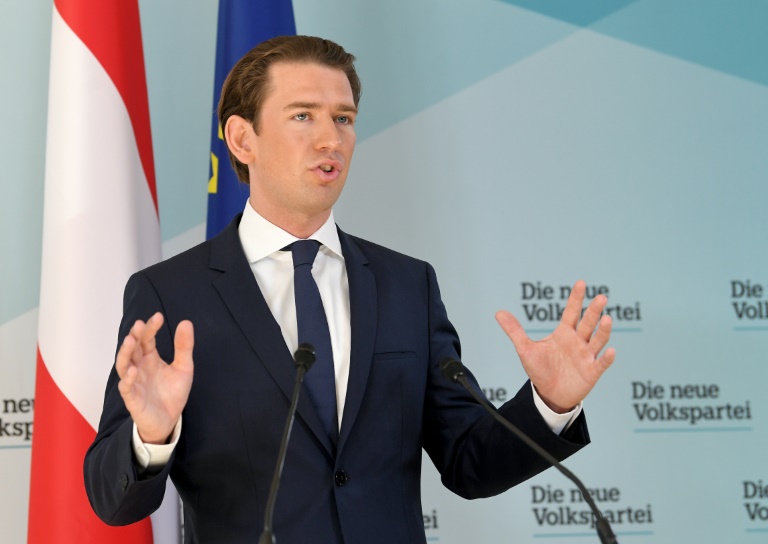
VIENNA - Austrian Chancellor Sebastian Kurz was facing the prospect of a no-confidence vote in parliament as he grappled Tuesday with the fallout from the "Ibiza-gate" scandal that toppled his coalition with the far right.
Austria's government was rocked last week after German media published a hidden-camera video showing then far-right Freedom Party (FPOe) leader Heinz-Christian Strache appearing to offer public contracts to a fake Russian backer in return for election campaign help.
The explosive video, filmed in a luxury villa on the Spanish island of Ibiza in July 2017, led to Strache's resignation as vice-chancellor on Saturday and to Kurz ending the 18-month-old coalition, which many on Europe's right had touted as a model.
Kurz announced a push for snap elections, expected in September, hoping to escape damage from the affair by asking Austrians to strengthen the hand of his centre-right People's Party (OeVP).
But Kurz may hit his first stumbling block as early as next week, with a special sitting of parliament called for Monday to discuss a no-confidence motion supported by the environmentalist Jetzt party.
For the motion to succeed it would need the backing of both the FPOe and the main opposition Social Democrats (SPOe), and it is not yet clear whether they will do so.
- Cabinet shake-up -
The latest twists come a day after FPOe ministers quit the government en masse after Kurz sacked controversial interior minister Herbert Kickl, a leading far-right party member.
Experts are already set to fill the cabinet posts vacated by the FPOe, with Kurz telling reporters on Tuesday that he would suggest names for the positions by the end of the day.
Speaking alongside Kurz, Austrian President Alexander Van der Bellen added that Foreign Minister Karin Kneissl had expressed a willingness to stay.
While not a FPOe member, she was nominated by the party and had been expected to follow its other ministers out of office.
Meanwhile, outgoing European Commission chief Jean-Claude Juncker Tuesday weighed in on the scandal condemning Strache's behaviour.
"The idea that you would offer up your country on a silver platter for others to help themselves doesn't correspond to my basic idea of patriotism," Juncker told reporters.
He said this week's elections for the European Parliament would be an opportunity for voters "to turn their backs on the threat from the right".
- Far-right victim? -
On Tuesday, Strache, who has admitted that his behaviour was "stupid" and "irresponsible", posted a statement on Facebook vowing to prove his innocence and "unmask those behind this illegally made video".
Senior FPOe politicians, including new leader Norbert Hofer, have chimed in presenting the party as a victim of a power-grab by Kurz.
The first opinion poll published after the scandal broke however offers some encouragement for Kurz, with his OeVP up four points to 38 percent and the FPOe falling back by five points to 18 percent.
When he took office, the 32-year-old Kurz was widely hailed on the European right as someone who could successfully tap into surging anti-immigration sentiment while projecting a polished demeanour.
While he said on Saturday that the constant string of FPOe-related scandals over the course of his government had been "hard to swallow", critics counter that he had had ample warning.
"There were plenty of clues as to the sort of dubious, chaotic characters he was going into coalition with, and where that would lead," commented the left-leaning Der Standard daily on Tuesday.